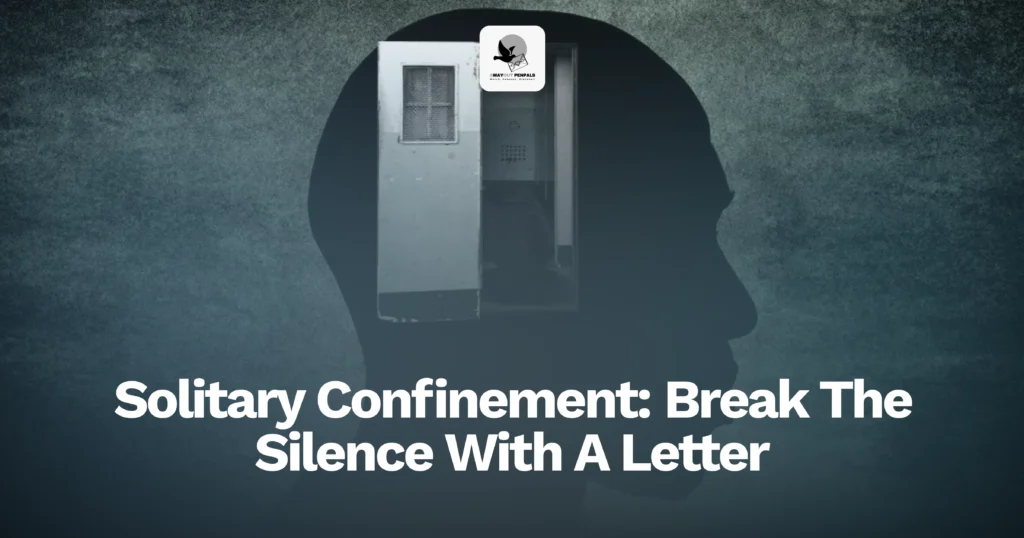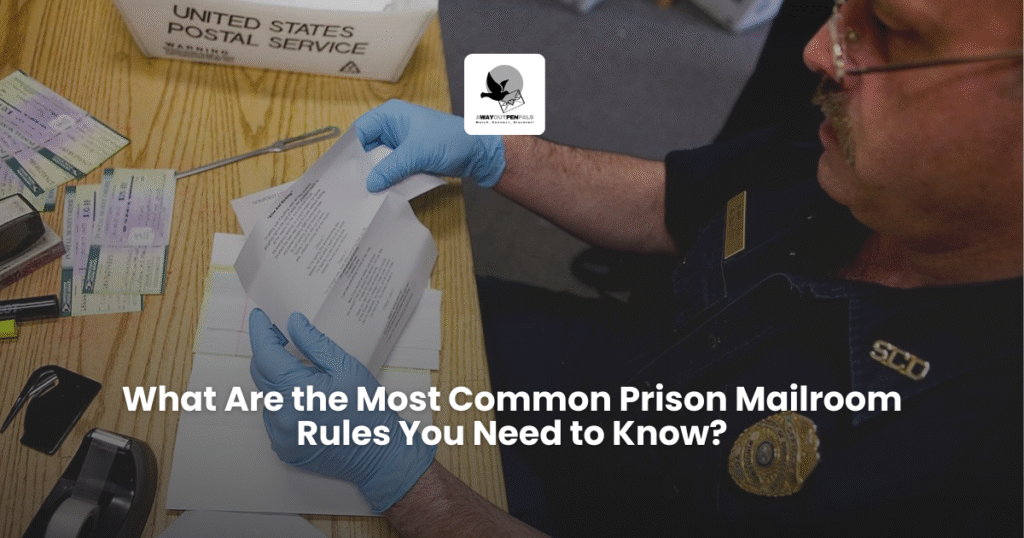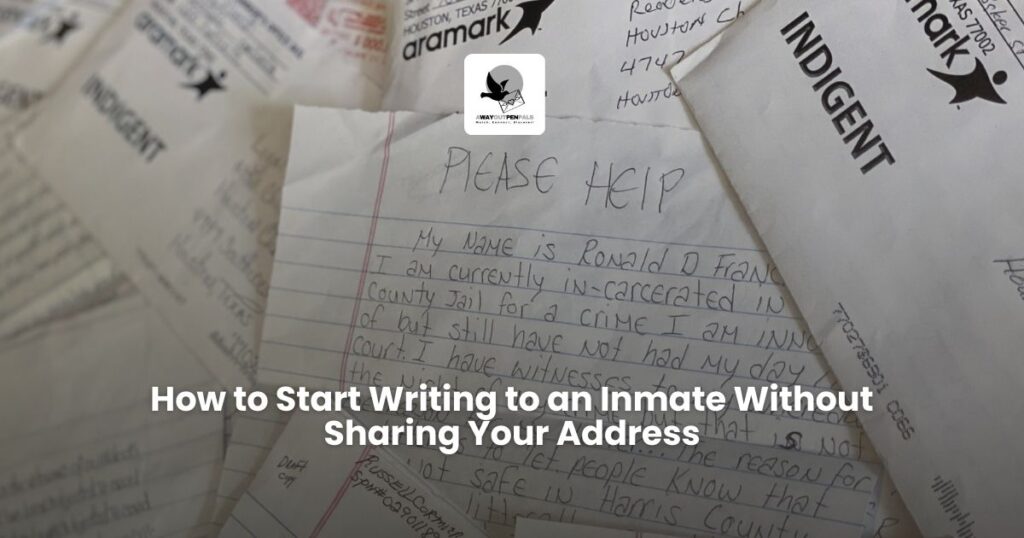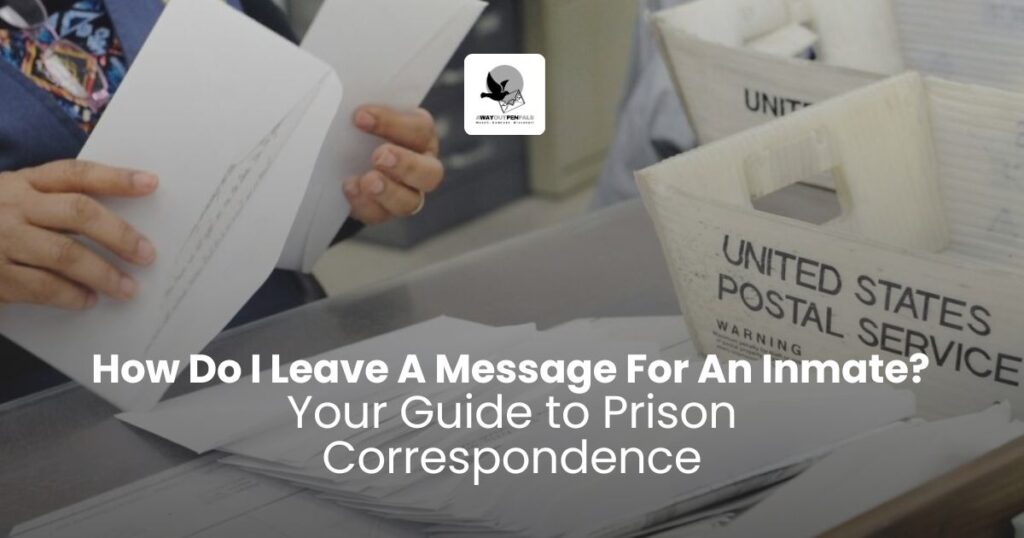What does it feel like to be forgotten not for hours, but for years?
That’s what solitary confinement does. It doesn’t just isolate people. It erases them from daily life.
When it comes to prison, you must know about solitary confinement.
Have you ever heard the term thrown around? You’ve probably seen it in crime shows or documentaries.
But do you really know what solitary confinement means for someone living through it every single day?
It means being locked in a small cell for 22 to 24 hours a day. No human touch, no conversation, and sometimes not even a window. That’s solitary confinement in prison. And it’s not just for a day or two. Some people spend weeks, months or even years.
Writing to someone in that situation? That’s more than just kindness. Your letters can bring light into the darkest part of their world.
Let’s break it down.
What Is Solitary Confinement?
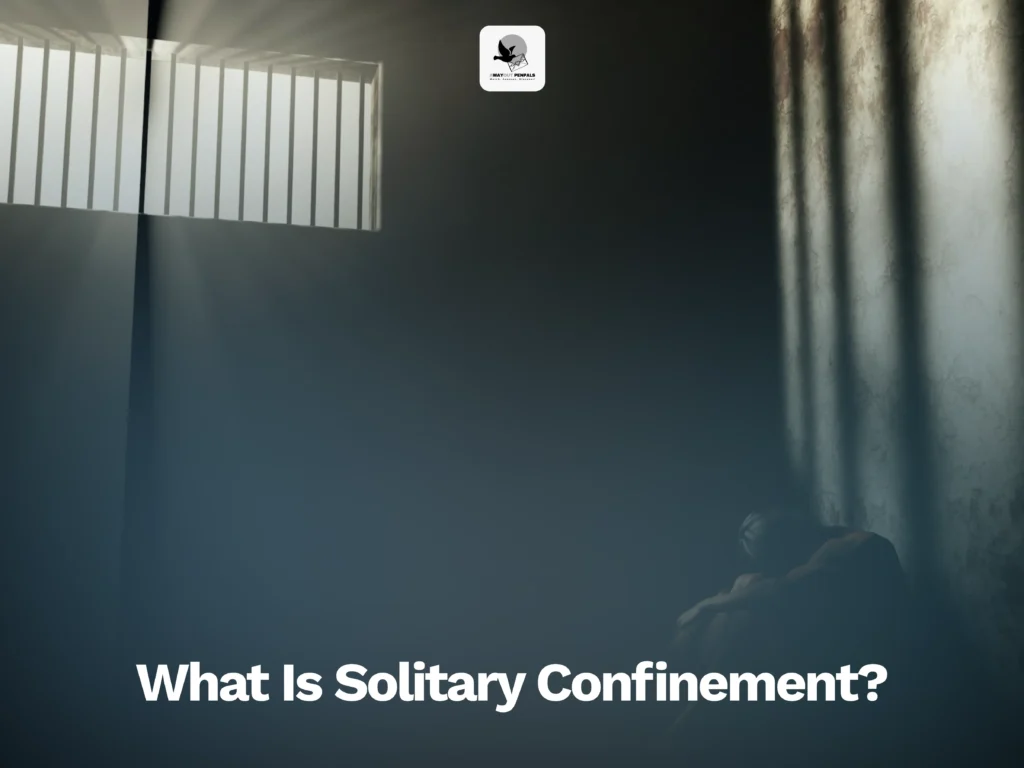
Solitary confinement is when a person is held alone in a small prison cell, often no bigger than a bathroom. There’s limited or no access to other people. No programs. No yard time. No visits. Some cells don’t even allow natural light.
People are usually placed there for disciplinary reasons, “protection,” or overcrowding. But solitary confinement in US prisons is used far more than most people realize.
According to the Bureau of Justice statistics, there are more than 80,000 men, women and children in solitary confinement in prison across the United States.
The Toll on Mental Health Is Real
Solitary confinement isn’t just about being alone. It does serious damage to mental health.
Here’s what many inmates face:
- Hallucinations
- Anxiety and panic attacks
- Trouble sleeping
- Memory loss
- Suicidal thoughts
A solitary confinement cell strips people of the basic things that make us human, like touch, conversation, time outdoors and even a sense of purpose.
And here’s where you come in.
Why Your Letters Matter More Than You Think
If you’re thinking, “I’m just one person. Can I really help?”
Yes. Absolutely, yes.
To someone in solitary confinement, a single letter can break the silence they’ve been stuck in for weeks. It reminds them they’re not forgotten. That someone, somewhere, sees them as a person, not just a number.
That little moment of connection can give them something to hold onto.
How to Write to Someone in Solitary Confinement
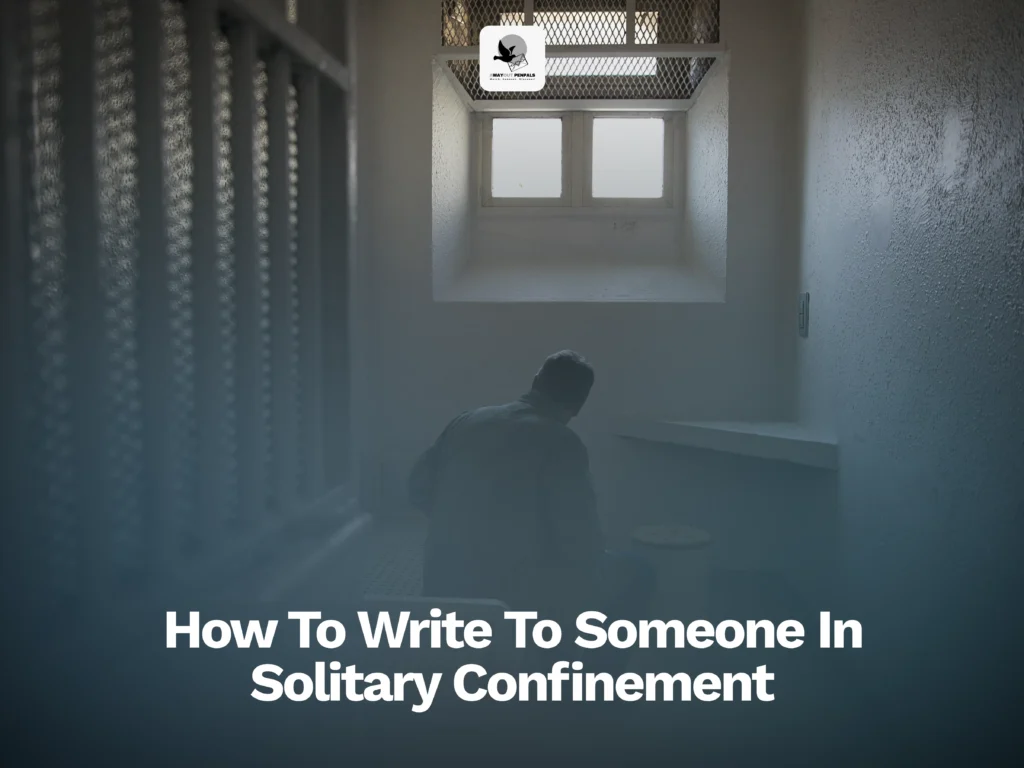
Before you start writing, here are a few important things to keep in mind:
1. Keep it consistent
Your first letter might not get a reply. That doesn’t mean they don’t care. Delays are common, and people in solitary confinement often have trouble writing back. Stick with it. Even one-sided communication helps.
2. Offer comfort, not pity
They don’t need to be reminded of how tough their life is, as they already know that, so don’t show your sympathy. Focus on offering support, encouragement and normal conversation.
Talk normally, like share about your day, ask general questions and share stories.
3. Avoid triggering topics
Skip the violent headlines, heavy politics or anything that might add stress. Solitary confinement mental health is fragile. Be a calm voice.
4. Don’t ask why they’re there
This isn’t the time for judgment. If they want to share their story, they will. Respect their boundaries.
5. Follow prison rules
Every facility has its own mail rules. Some don’t allow stickers, colored paper, or certain types of ink. Always check the rules of the specific prison before you send anything.
What to Say in Your Letter
Not sure how to start? Try these simple ideas:
- Share something that made you laugh recently
- Talk about the weather, your pet or a new recipe you tried
- Ask about their favorite childhood memory
- Share music or book recommendations
- Describe a peaceful moment from your life
Treat it as if you’re writing to a friend who’s having a rough time.
Read more about What to Write to Someone in Prison
You’re Doing More Than You Know
Writing to someone in a solitary confinement cell might seem small. But it’s not. You’re giving someone in a hopeless place a reason to hold on. You’re giving them something to look forward to. A piece of the outside world.
And in a system that often forgets people, that matters more than you’ll ever know.
The One Letter Rule: Why Your Words Matter More Than You Think

Solitary confinement is not just being alone. It’s being forgotten.
No faces. No voices. No sun. Just time that doesn’t move.
You don’t need to fix that. You’re not expected to.
But you can reach through it, with something as simple as a letter.
In this post, we talked about what solitary really is, how it breaks people down, and why even one short message from the outside can mean the world.
We gave you a few tips, a few do’s and don’ts, but here’s the truth:
There’s no perfect way to write.
There’s just your way. Your words. Your kindness. That’s enough.
Because while solitary strips everything away, a letter gives something back.
Hope.
A name.
A reminder: You still matter.
So if you’ve been wondering whether it’s worth it… it is.
For them, and maybe even for you.
Ready to write?
A Way Out Pen Pals is here to help you get started. Browse our guides, find an inmate to write to, and send that first letter. It could change someone’s life. Maybe even yours, too.
FAQs:
Q1: How long can someone stay in solitary confinement in US prisons?
It can last days, months, or even years. There are no strict limits in most states.
2: Can inmates in solitary confinement receive mail?
Yes. Mail is often delayed or screened, but it’s one of their only lifelines to the outside world.
3: Should I write about serious or personal topics?
Only if they bring it up first. Keep things light, positive, and supportive.
4: What’s the best way to address the letter?
Use their full name, ID number and exact facility address. Always double-check before sending.
5: What is not allowed in letters to solitary confinement inmates?
Avoid stickers, glitter, colored ink and anything decorative. Use plain paper and simple ink to avoid issues.

